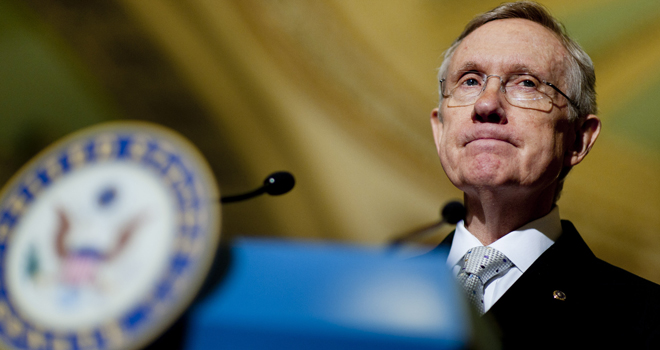Compared to House Republicans, Senate Majority Leader Harry Reid (D-NV) is a happy man right now.
The Congressional Budget Office says his debt limit bill will reduce deficits relative to the current baseline by about $2.2 trillion over 10 years — much more than House Speaker John Boehner’s (R-OH) bill, which scored such small savings Tuesday evening that he pulled it to include more spending cuts at the last minute.
But it’s not all good news for Reid. First, Republicans are already dismissing the big numbers because they rely heavily on savings from winding down wars in Afghanistan and Iraq. Those savings are what you call “budget gimmickry,” when the other party relies on them, so the GOP says they shouldn’t count.
Second, Reid had previously been claiming the plan would produce $2.7 billion in spending cuts over ten years. He had hoped this would give leverage in the issue of how far to raise the debt ceiling.
That’s because the GOP has been insisting that the debt limit bill meet an arbitrary standard: new borrowing authority must be matched or exceeded by the amount by which the legislation will reduce the deficit. Democrats want at least a $2.4 trillion increase in the debt limit, to get Congress through 2012 before this fight plays out again. It’s unclear how far $2.2 trillion in new borrowing authority would allow the government to keep on running, but if it’s not enough to outlast November 2012, Democrats won’t be pleased, and the parties will really have to reckon with this standard.
Now, too, we know why the White House is defending House Republicans’ use of an out-dated budget baseline in this debate. They make both the GOP bill and the Democratic bill look like they contain slightly deeper cuts — and they could really use that little kick right now.
This piece was updated at 9:50.










